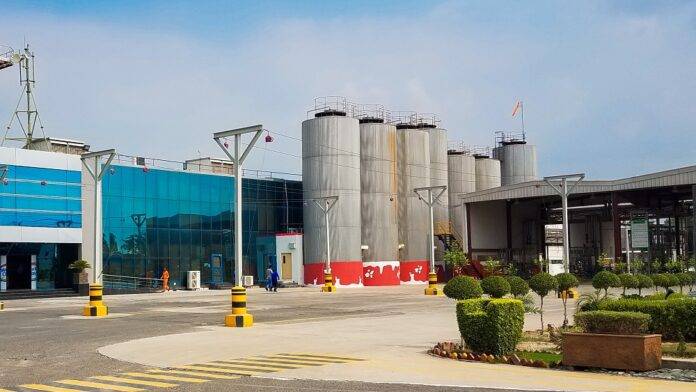Islamabad, Court Reporter: In a recent case involving M/s. Engro Foods (Pvt.) Limited, a prominent food manufacturer in Pakistan, the company found itself embroiled in a legal dispute over the import of a milk chocolate consignment that was ultimately deemed non-compliant with the country’s import regulations.
Check Releted Documents: “Click To Check”
Case Background
The issue began when Engro Foods electronically filed Goods Declaration No. KAPW-HC60946-26-10-2023 through their clearing agent, M/s. S. M. Asghar (Pvt.) Ltd, for a consignment of 8,000 kilograms of milk chocolate. The consignment was declared under PCT Heading 1806.2090 with an invoice value of USD 52,400. The importer determined its liability for applicable duties and taxes in accordance with Section 79(1) of the Customs Act, 1969.
Upon examination by the customs authorities, it was discovered that the imported goods had a short shelf life—less than 66% of the total shelf life. According to S. No. 4 of Appendix-B, Part-I, of the Import Policy Order, 2022, goods with a shelf life of less than 66% are banned from import, making the consignment liable for confiscation. The customs authorities also noted that this act constituted a violation of Section 16 and 209(3) of the Customs Act, 1969, punishable under clause (9) of Section 156(1) of the Customs Act.
Adjudication and Penalties
The case was referred to the Adjudicating Officer, who issued Order-in-Original No. 1843699 dated 24-11-2023. The officer upheld the charges against Engro Foods, ordering the confiscation of the goods and imposing a personal penalty of PKR 14,827,378 on the importer. The decision was based on the finding that the goods did not meet the mandatory requirements of the Import Policy Order, 2022.
The Adjudicating Officer stated, “The goods have a shelf life of less than 66%, which is banned as per S. No. 4 (iii) of Appendix-B, Part-I of the Import Policy Order, 2022. The importer could not fulfill the mandatory requirement of Import Policy Order, 2022.”
Appeal by Engro Foods
Aggrieved by the decision, Engro Foods filed an appeal against the Order-in-Original No. 1843699 before the Collector of Customs (Appeals). The company argued that the imported milk chocolate was intended for in-house consumption and further processing in the manufacturing of ice cream. They contended that the goods not meant for retail sale in their imported condition and thus should not be subject to the 66% shelf life requirement.
The appellant further argued that the penalty imposed was exorbitant and unjustified. They highlighted that the goods ordered and the Letter of Credit (LC) has opened before the ban on imports has notified. The delay in shipment, which led to the reduced shelf life, was a result of circumstances beyond their control.
Collector’s Ruling
After hearing both sides, the Collector of Customs (Appeals) examined the case thoroughly. The Collector noted that the goods indeed ordered before the import ban was notified and that the reduced shelf life was an unforeseen consequence of the delay in shipment. The Collector also observed that there was no evidence of any willful misrepresentation by the importer.
In a significant ruling, the Collector set aside the Order-in-Original and allowed Engro Foods to re-export the consignment to its original supplier. The decision was based on para 20(d) of the Import Policy Order, 2020, which permits re-export of goods in such cases to mitigate the losses of the importer. The Collector also directed the issuance of a delay and detention certificate under Section 14-A(2) of the Customs Act, 1969, to alleviate the financial burden on the importer.
Conclusion
This case highlights the complexities and challenges faced by importers in complying with import regulations, especially in situations where circumstances change after contracts made. While the initial ruling was harsh, the appeal decision provided a more balanced approach, offering relief to the importer while upholding the integrity of the import policy.
Engro Foods’ legal battle underscores the importance of understanding and navigating the intricacies of import laws and policies, which can have significant financial implications for businesses.
